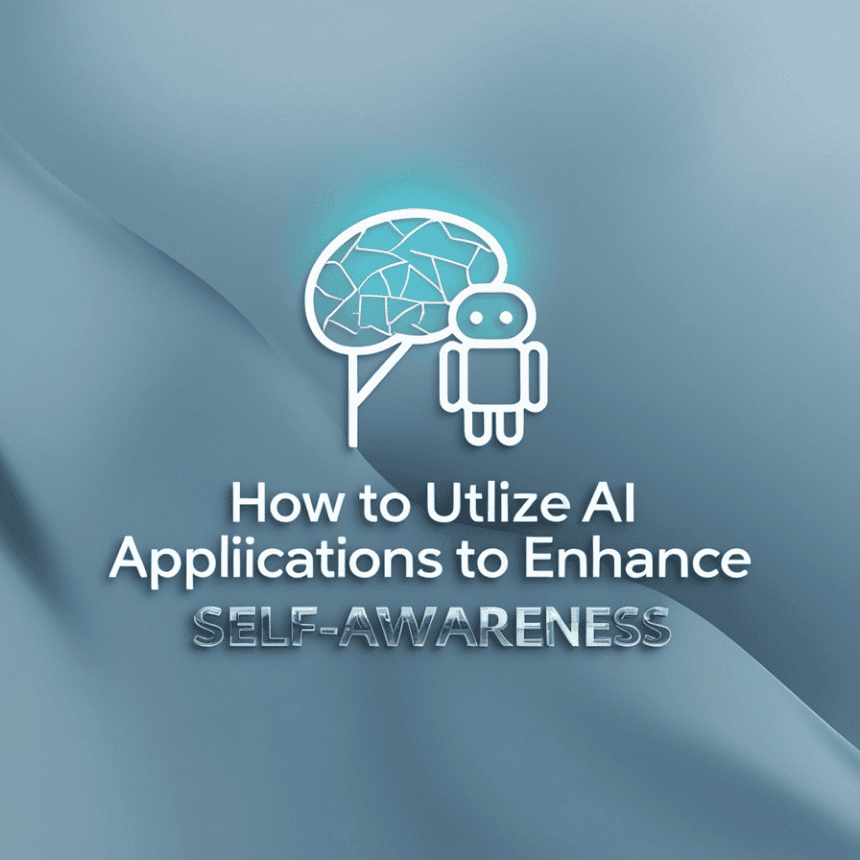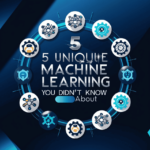The intersection of artificial intelligence AI and self-awareness offers revolutionary tools to improve our understanding of ourselves in a world where over 90% of people believe that self-awareness is essential for personal growth.
How can AI applications help us uncover hidden patterns in our thoughts and behaviors? By utilizing advanced algorithms, AI can provide personalized insights, from analyzing our daily habits to reflecting on our emotional states. Imagine getting real-time feedback on your mood or gaining clarity on decision-making processes—tools that help in personal development and improve interpersonal relationships.
Join us as we explore useful AI applications that enable you to navigate life with enhanced self-awareness, growing a deeper connection to yourself and the individuals around you.
AI Applications in Self-Awareness
Imagine an AI that helps you better understand yourself and helps you! “AI Applications in Self-Awareness” focuses deeply on the ways that modern technology can improve mental health, emotional intelligence, and self-discovery. A little peek at what this blog might have to offer is this:
Overview of AI Technologies in Self-Awareness
Have you ever considered using AI to find the answers to questions like “What habits shape my mood?” or “Why do I feel this way?” AI will monitor mood swings, identify patterns in your everyday thinking, and even provide personalized mindfulness exercises using tools like machine learning and natural language processing (NLP). 73% of consumers said AI-powered self-improvement applications were more personalized and interesting than typical methods, per a recent study.
How Self-Awareness Can Be Supported by AI
“Knowing yourself is the beginning of all knowledge.” However, how can AI be useful? AI solutions like MindStrong and The Republic create a personal profile that detects causes habits, and areas for possible improvement by monitoring anything from stress levels to sleep quality.
Imagine carrying a pocket-sized teacher who knows you and is available to give you tailored advice whenever you need it. The “AI boost” might facilitate self-reflection, help you recognize emotional patterns, and provide practical steps to become a more self-aware version of yourself.
Quick Tips to Tap into AI for Better Self-Awareness
- Start Small: Try using mood-tracking apps to observe daily emotional patterns.
- Set Goals: Aim to uncover hidden triggers or habits over time.
- Stay Curious: Embrace new insights as AI helps connect the dots in your journey to self-awareness.
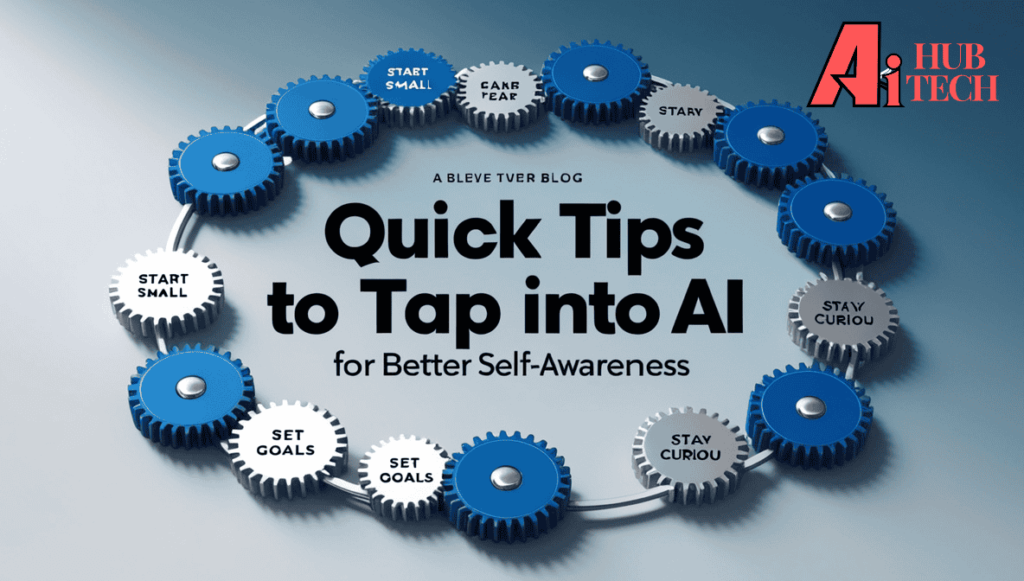
Ready to unlock the “you” you didn’t know existed? Dive into the world of AI for self-discovery and start transforming your daily life one insight at a time.
Emotional Self-Awareness Through AI
Like you know the lyrics to your favorite song, AI can help you understand your feelings. In everyday life, emotional self-awareness is a game-changer, not just a talent. How often do you think your decisions are motivated by your feelings? Explore deeply and find out what drives you. AI technologies can help you identify hidden emotional patterns and increase self-awareness up to 40% faster than traditional self-help methods.
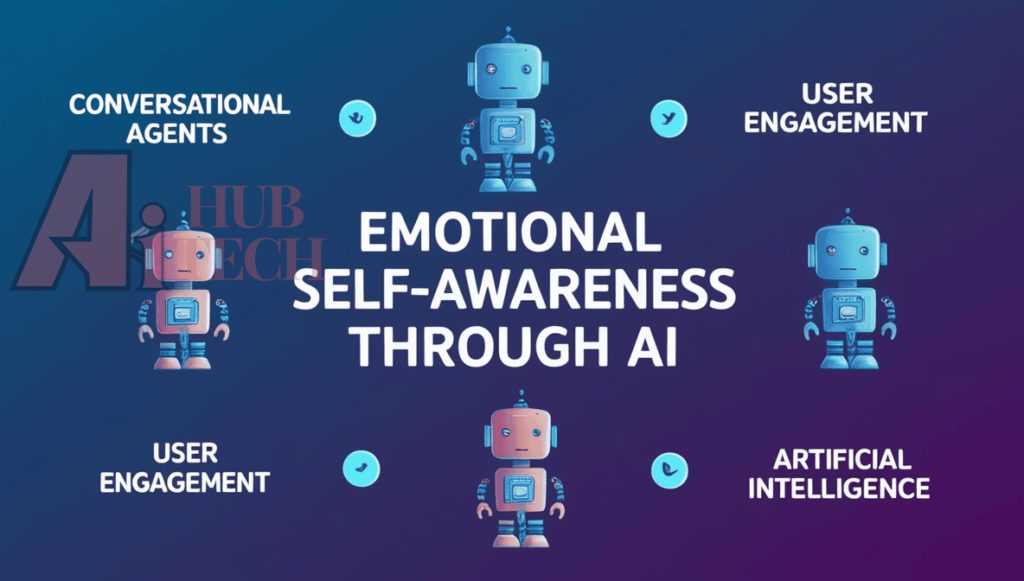
- Conversational Agents: Bear and other AI systems encourage users to express and consider their feelings through interactive conversations, which helps them become more emotionally self-aware.
- User Engagement: Research shows that although users want more individualized and responsive interactions, they value the comfort and assistance these agents offer.
Artificial Intelligence Systems, Responsibility, and Aggressive Self-Awareness
Because artificial intelligence systems lack Aggressive self-consciousness—the awareness that they are agents behind their actions—they are unable to perform moral responsibility. What if artificial intelligence (AI) could be created with a “minimal self,” or their basic understanding of control over its behavior?
The theory here, based on psychological observations, is that AI may require a real, living-like body, like to that of people or animals, to truly “own” its activities. For example, may the behavior of robotic pets represent the first one’s stages of artificial intelligence self-awareness?
A genuine sense of self may serve as the essential basis for AI’s duty of care and accountability.
Mental and Social Self-Awareness with AI
As 80% of people struggle with self-perception, ” Mental and Social Self-Awareness with AI” reveals how technology can help you understand not only what you think, but also why you think it—and how your thoughts affect relationships and social interactions. Think of AI as a mental mirror that displays patterns and behaviors you might not notice. AI tools can offer personalized insights, sparking self-growth and helping you become your best self. Ever think about how your thoughts affect your daily decisions? Learn how AI can help you discover, one thought at a time.
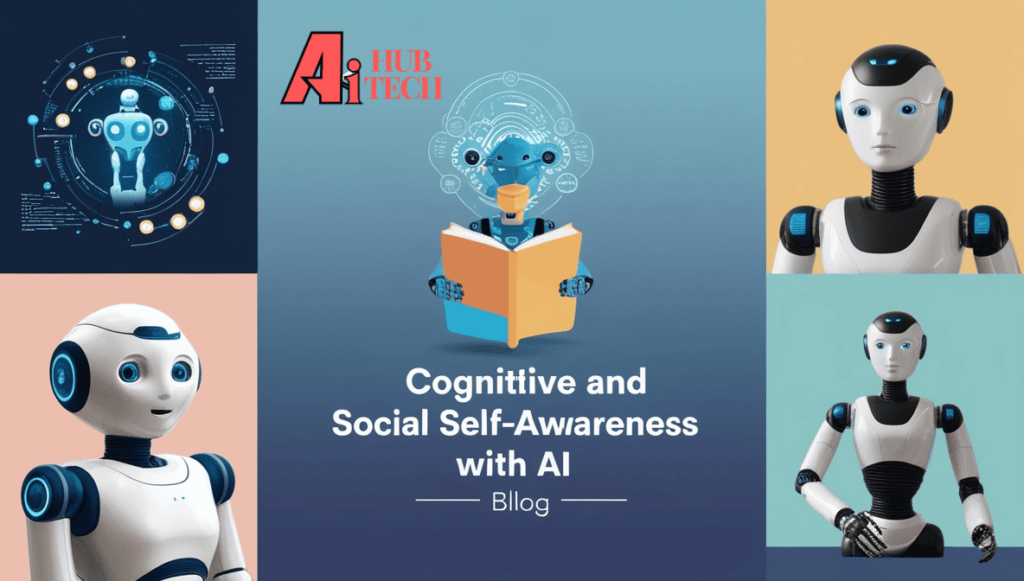
- Information Processing: By teaching agents to plan their reactions in response to sensory signals, information processing provides an environment for understanding how self-awareness develops in AI.
- Summarized Reasoning: Studies show that encapsulated reasoning can be used to build social self-awareness in AI, enabling agents to learn about both their own and other people’s mental states.
Algorithmic Foundations of Self-awareness with AI
“Who am I?” is a timeless question. What if artificial intelligence could help us answer it? We explore how state-of-the-art algorithms understand human emotions, routines, and mental habits in “Algorithmic Foundations of Self-Awareness with AI,” transforming data into a mirror of awareness.
People benefit from data generated by AI daily; according to a recent survey, 68% of the participants said that using digital self-awareness tools made them more conscious of their mental health. Interested how the person behind the statistics can be revealed through algorithms? Prepare to discover the code that has the power to transform your self-image, one understanding at a time.
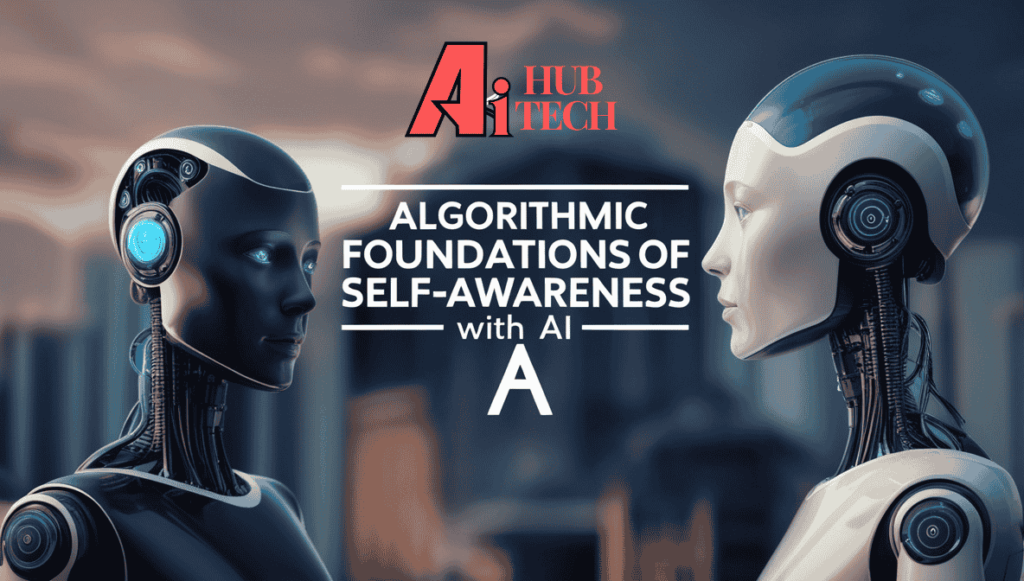
- Consciousness and Time: Developing algorithms that could result in artificial self-awareness needs an understanding of the relationship between consciousness, thought, and time.
Even though AI self-awareness is evolving in a positive way, there is still doubt over how much deeper understanding these systems can comprehend than humans, especially in social and emotional situations.
Conclusion
AI applications offer a new way to improve self-awareness, making understanding yourself easier each day. Most experience daily emotional and reactive conflicts and are uncertain about which way is forward. It is with these AI tools that you may find your improvements in knowing better about identifying patterns or behaviors, leading to an even more instructive response with time.
Tracking your mood, recording your thoughts, and using reminders to stop help give you greater clarity about your actions. Self-reflection and behavioral adjustments, assisted by AI, contribute to a more straightforward path of self-discovery. Could an AI coach make understanding yourself easier day by day? With a little curiosity, these tools might be your new guide.

